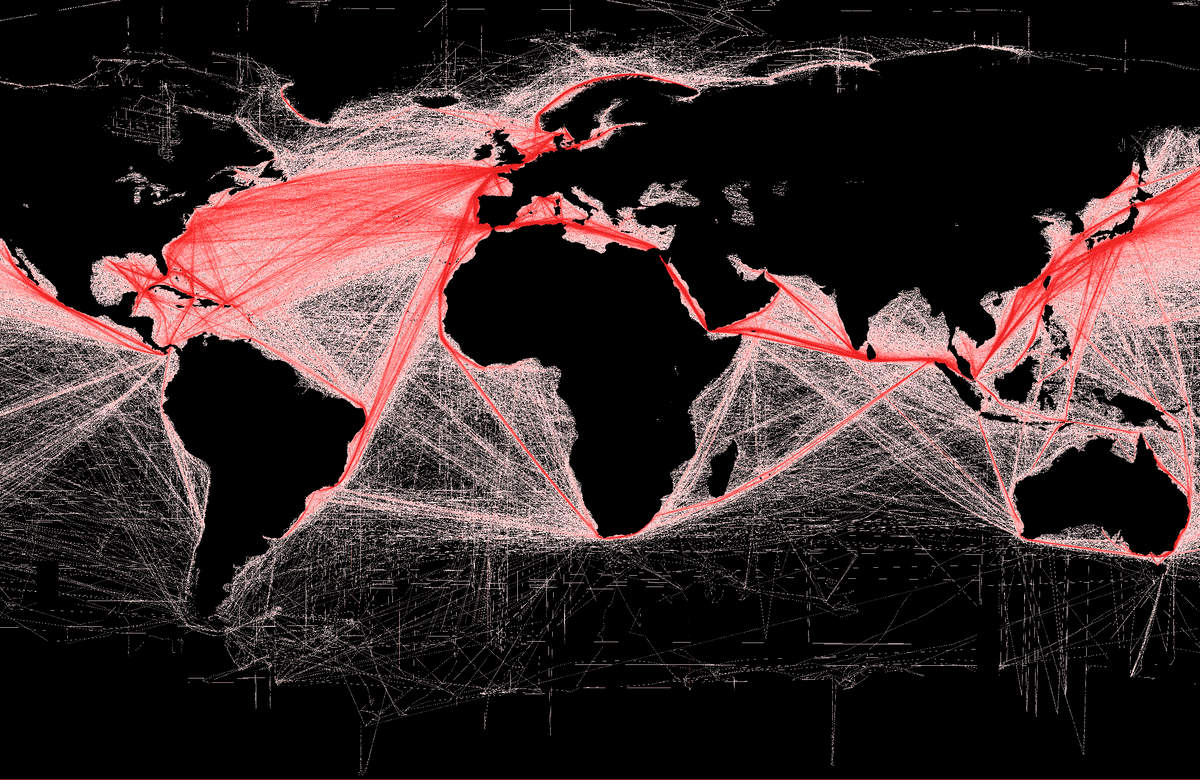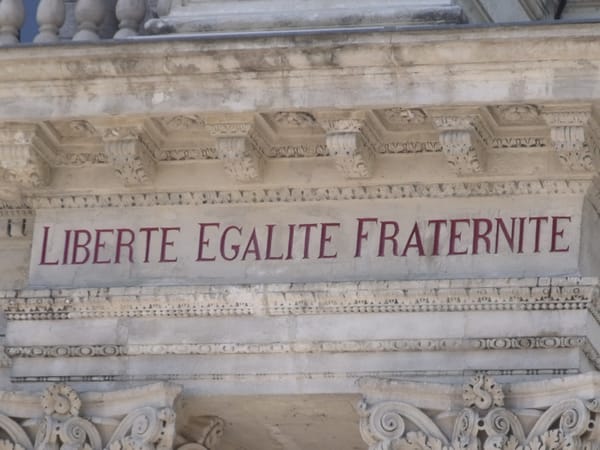Hayek’s Reimagined Economics and What It Lacked

F. A. Hayek was, to use Peter Boettke’s phrase, a “lifelong learner,” changing his position on a variety of topics throughout his long career as he tested the boundaries of his framework and sought to iron out its contradictions. The Hayek I wish to present here is therefore just one Hayek among the several one can find. The crucial elements of this Hayek’s framework were expectations, embeddedness, and innovation. Hayek’s framework when he wrote in this vein can improve our understanding of how interpretations are generated and the impact they have on our social systems. The union of Hayekian analysis and the concept of interpretation allows us to overcome several conceptual tensions which Hayek himself could not, and to evaluate social orders from a discursive rather than positivist or utilitarian perspective.
Expectations
Hayek began by focusing on one of the central pillars of modern economics analysis: the concept of equilibrium. His suggestion in “Economics and Knowledge” is that equilibrium is a state of affairs in which agents pursue mutually accommodating projects and have their expectations met.
It appears that the concept of equilibrium merely means that the foresight of the different members of the society is in a special sense correct. It must be correct in the sense that every person’s plan is based on the expectation of just those actions of other people which those other people intend to perform and that all these plans are based on the expectation of the same set of external facts, so that under certain conditions nobody will have any reason to change his plans. Correct foresight is then not, as it has sometimes been understood, a precondition which must exist in order that equilibrium may be arrived at. It is rather the defining characteristic of a state of equilibrium. Nor need foresight for this purpose be perfect in the sense that it need extend into the indefinite future or that everybody must foresee everything correctly. We should rather say that equilibrium will last so long as the anticipations prove correct and that they need to be correct only on those points which are relevant for the decisions of the individuals.
Further down he fleshed this out:
Consider the preparations which will be going on at any moment for the production of houses. Brickmakers, plumbers, and others will all be producing materials which in each case will correspond to a certain quantity of houses for which just this quantity of the particular material will be required. Similarly we may conceive of prospective buyers as accumulating savings which will enable them at certain dates to buy a certain number of houses. If all these activities represent preparations for the production (and acquisition) of the same amount of houses, we can say that there is equilibrium between them in the sense that all the people engaged in them may find that they can carry out their plans. This need not be so, because other circumstances which are not part of their plan of action may turn out to be different from what they expected. Part of the materials may be destroyed by an accident, weather conditions may make building impossible, or an invention may alter the proportions in which the different factors are wanted. This is what we call a change in the (external) data, which disturbs the equilibrium which has existed. But if the different plans were from the beginning incompatible, it is inevitable, whatever happens, that somebody’s plans will be upset and have to be altered and that in consequence the whole complex of actions over the period will not show those characteristics which apply if all the actions of each individual can be understood as part of a single individual plan, which he has made at the beginning.
In short, much of our life is spent in relations of more or less mutual accommodation which can be disturbed when our expectations are not met.
Embeddedness
Hayek made a radical turn towards embeddedness in his most famous and influential paper, “The Use of Knowledge in Society.” In it, he introduced his “man on the spot” as the agent seeing the world from a ground-level view. Hayek asked what knowledge would be useful to the man on the spot for achieving his ends.
There is hardly anything that happens anywhere in the world that might not have an effect on the decision he ought to make. But he need not know of these events as such, nor of all their effects. It does not matter for him why at the particular moment more screws of one size than of another are wanted, why paper bags are more readily available than canvas bags, or why skilled labor, or particular machine tools, have for the moment become more difficult to obtain. All that is significant for him is how much more or less difficult to procure they have become compared with other things with which he is also concerned, or how much more or less urgently wanted are the alternative things he produces or uses. It is always a question of the relative importance [emphasis added] of the particular things with which he is concerned, and the causes which alter their relative importance are of no interest to him beyond the effect on those concrete things of his own environment.
Hayek invited his colleagues to reimagine the price system as something capable of drawing on the specific circumstantial knowledge dispersed across many embedded agents, while providing those agents with information on “how much more or less difficult” achieving their ends had become. A price does not answer the question “what is going on in the world that might impact my plans?” Instead, it answers the question “how much must I sacrifice to get this car, this factory input, this sandwich?” By and large, his contemporaries hadn’t even concerned themselves with those questions in the first place, much less interpreted the nature of the price system with that context in mind.
Innovation
The next aspect of this Hayek which we will examine here concerns the nature of innovation and its role in social change. In The Constitution of Liberty, Hayek discussed what he called “the creative powers of a free civilization.” This process greatly resembles what Everett Rogers would call Diffusion of Innovations in his book by that name, which came out two years later. Modern readers will recognize the influence of Rogers’s book in familiar concepts such as the “early adopter.”
In contrast to the diffusion of innovations literature, which focused on the top-down introduction of innovations into a social system, Hayek offers a vision of trial and error on a vast scale. Specific individuals and subcommunities experiment with new products, practices, fashions, even lifestyles. These innovations either end where they began or diffuse beyond their initial trial group. More on this below, but for now it suffices to observe that the projects that agents pursue are no more fixed than their expectations. They are subject to innovation by the agents themselves, or the adoption of innovations developed by other agents that have diffused through the social systems.
These processes of experimentation include the well-known instances of wealthy consumers subsidizing the early iterations of innovations that have yet to become cost-effective:
At any stage of this process there will always be many things we already know how to produce but which are still too expensive to provide for more than a few. And at an early stage they can be made only through an outlay of resources equal to many times the share of total income that, with an approximately equal distribution, would go to the few who could benefit from them. At first, a new good is commonly ‘the caprice of the chosen few before it becomes a public need and forms part of the necessities of life. For the luxuries of today are the necessities of tomorrow.’ Furthermore, the new things will often become available to the greater part of the people only because for some time they have been the luxuries of the few.[1]
But social experimentation of any sort falls into Hayek’s framework. He gives the example of the wealthy communities who developed tennis for fun. Their small-scale experimentation was adopted, and transformed in the process of adoption, until it became a vocation for athletes and a source of entertainment for the masses. He also discusses beliefs and morality:
We cannot attempt to recount here the long story of all good causes which came to be recognized only after lonely pioneers had devoted their lives and fortunes to arousing the public conscience, of their long campaigns until at last they gained support for the abolition of slavery, for penal and prison reform, for the prevention of cruelty to children or to animals, or for a more humane treatment of the insane. All these were for a long time the hopes of only a few idealists who strove to change the opinion of the overwhelming majority concerning certain accepted practices.[2]
He adds that “The argument for democracy presupposes that any minority opinion may become a majority one.”[3] The emphasis in these examples lend themselves to an interpretation of this trial-and-error process as the engine of progress, but I would argue that it is just as crucially the engine of pluralism. Tastes, lifestyles, and values are generated, tried within smaller or larger communities, and then disappear more often than not. Some subset of these diffuse widely and become mainstream.
A living system
The pieces we have assembled so far are as follows. First, we all exist in relations of more or less mutual accommodation that can be disturbed when our expectations are not met. Second, our field of action and therefore the knowledge which informs our expectations are circumscribed to our corner of the system, rather than to expectations about the system as a whole, about which we may or may not have much useful knowledge at all. Third, most people are engaged, to a greater or lesser degree, in trial and error to attempt to improve some facet of their lives. Putting them together, it is clear that the innovations adopted either by the few or the many will fall outside of people’s expectations, almost by definition. Rogers, for example, defined an innovation as “an idea, practice, or object that is perceived as new by an individual or another unit of adoption.”[4] In less careful language, we might say that something is innovative to the degree that we did not expect it.
Agents will adjust their expectations to the ways these innovations change their little corner of society. These adjustments can add up to change the overall character of the social systems in which those agents are embedded. This change in character, in turn, will alter the specific circumstances of each agent, through a change in prices perhaps, or job opportunities, or simply in available goods or services for purchase. And agents will therefore adjust their expectations to these changes, changing the character of the system once more. As an example, consider the adoption of the smartphone. When it was in the hands of a few people, it was largely a novelty. But as enough people were exposed to it and found it compelling, and adoption spread more widely, it became profitable to develop software on top of it. This in turn made them more attractive, fueling wider adoption. Wider adoption, in turn, made it more attractive to software developers. At this point we have a complex social and business ecosystem that has grown around smartphones specifically. And the story does not, of course, end there, any more than the story of the role of the personal computer ended in the 1990s.
Hayek therefore begins by analyzing the nature of equilibrium only to bring it to the very brink of irrelevance. The only comfort he offers his colleagues is that there may exist a tendency towards equilibrium. “It is only by this assertion that such a tendency exists that economics ceases to be an exercise in pure logic”[5]. Instead of comparative statics, we are left with complex, adaptive social systems, existing in relations of constant multidirectional adjustment with the actions, expectations, and innovations of embedded agents.
The role of interpretation in all of this is strangely unstated by Hayek, but clearly implied. Prices are interpreted by agents as meaning that something is more or less difficult to get than it was, innovations are innovations only because they are interpreted as something new or unexpected, equilibrium exists because we’ve interpreted the situation as having stayed within our expectations. As we shall see, the way we understand our situation, our goals and our options, and our relations to one another, is also a matter of interpretation – and Hayek’s process of experimentation generates innovation in interpretation as well.
Articulation as Interpretation
Hayek begins “Rules, Perception and Intelligibility” as follows:
The most striking instance of the phenomenon from which we shall start is the ability of small children to use language in accordance with the rules of grammar and idiom of which they are wholly unaware. “Perhaps there is,” Edward Sapir wrote thirty-five years ago, “a far-reaching moral in the fact that even a child may speak the most difficult language with idiomatic ease but that it takes an unusually analytical type of mind to define the mere elements of that incredibly subtle linguistic mechanism which is but a plaything in the child’s unconscious.”[6]
The incredible difficulty underlined in the Sapir quote to “define the mere elements” of a mechanism of social commerce that is “incredibly subtle” was central to Hayek’s later work. This is the struggle to articulate the basis of articulacy, to develop a language to talk about language – or any similarly complex social system that we need not consciously understand in order to participate in.
Hayek pursued this question most systematically in his heroic studies in Law, Legislation, and Liberty, the first volume in particular. I am not going to attempt to reconstruct his answer here; it involves a complex cocktail of natural law, neo-Kantianism, and cultural evolution which I do not believe bore the fruit Hayek desired of it. Moreover, the specter of consequentialism looms over the role he casts for cultural evolution there and throughout his work. Glen Whitman makes a compelling case that Hayek explicitly denounced such consequentialism, but he does not appear to me to have been consistent on this; the following passage from The Constitution of Liberty exemplifies the difficulties he struggled with, with emphasis added by me:
It is, of course, a mistake to believe that we can draw conclusions about what our values ought to be simply because we realize they are a product of evolution. But we cannot reasonably doubt that these values are created and altered by the same evolutionary forces that have produced our intelligence. All that we can know is that the ultimate decision about what is good or bad will be made not by individual human wisdom but by the decline of the groups that have adhered to the “wrong” beliefs.[7]
I do not think Hayek managed to resolve this tension in his framework, and I certainly reject the idea that “the ultimate decision” about right and wrong are determined by the decline or success of particular groups. But I believe Hayek was right to focus on the problem of articulacy. And the pieces from his works which we put together above, when complemented by certain aspects of late 20th century and contemporary philosophy, provide us with the resources to address this problem more fruitfully, without falling into either Hayek’s own struggles, or the positivism and utilitarianism of mainstream economic theory.
In thinkers such as Maurice Merleau-Ponty and Charles Taylor, we find the notion of a kind of physical articulacy; ways of being and of conducting oneself which carry coded values and understandings. We can then name aspects of these ways of being, and develop ways of talking about them. In attempting to articulate these physical enactments in word, however, we necessarily change them, just as a poem is necessarily changed when translated into another language. To translate a poem requires us to interpret it; differences in translation reflect differences in the translators’ interpretations. Taylor, with Alasdair MacIntyre and Richard Rorty, offers a vision of languages which provide greater or lesser resources for articulation. But articulation of what?
I think Deirdre McCloskey, Daniel Klein, and Russ Roberts, all spiritual successors to the Hayek outlined in this piece, have each attempted to answer this question in their own way. Klein invites his readers to imagine a being capable of looking down upon the Hayekian order from above, and to judge it according to how pleasing she finds it. Roberts’s defense of that order seems to rest primarily on the notion that it is not merely efficient, but sublime.
McCloskey, Klein, and Roberts are critics of, and struggle against, positivist and utilitarian tendencies that are latent in professional economics. Those latent tendencies can be seen as part of a single project to get outside the messy contingencies of persuasion within the context of pluralism, a project aimed at offering some standard that will stand above the fray. Positivists in economics believe that the only theories which have scientific content are those with strict, testable predictions. Utilitarianism and consequentialism gesture at an underspecified “happiness” to maximize or “good state of affairs” to aim at. Both traditions have fatal flaws, but the most important flaw they share is the notion of a standard that can transcend the uncertain, frustrating, groundless process of negotiating interpretations and the standards that emerge from them, which we are all a part of.
Rather than entering into the judgments of a metaphorical being or a discussion of the nature of the sublime, I suggest we think of the struggle for articulacy as the struggle to articulate the deepest possible understandings of ourselves and our shared situation; what might be called wisdom. We seek to articulate it with regimented theoretical languages, as economists do and philosophers have done for millennia. But we also seek to articulate it in novels, film, poetry, music, and painting. Hayek’s grand processes of trial and error do not generate new games (such as tennis) or forms of art (such as the novel) simply because they are entertaining, but because they provide fresh resources for articulating what we previously could not. In other words, the processes of trial-and-error generate the resources for interpreting what, exactly, counts as an “error,” what is unwise.
All faiths, philosophies, and ways of life which offer a vision of the good and the wise were generated through the pluralistic processes of experimentation described by Hayek. How you evaluate each of them, as well as how you evaluate the pluralistic processes themselves, depends upon your interpretative framework, which is itself in play. There is a circularity here, but it is more of a spiral than an infinite regress: you play different readings off against one another to deepen your understanding, revising your interpretations to varying degrees along the way. As Taylor put it in “Interpretation and the Sciences of Man,”
Our conviction that the account makes sense is contingent on our reading of action and situation. But these readings cannot be explained or justified except by reference to other such readings, and their relation to the whole. If an interlocutor does not understand this kind of reading, or will not accept it as valid, there is nowhere else the argument can go. Ultimately, a good explanation is one which makes sense of the behaviour; but then to appreciate a good explanation, one has to agree on what makes good sense; what makes good sense is a function of one’s readings; and these in turn are based on the kind of sense one understands.[8]
Positivists and others with similar modernist sensibilities think that true knowledge is impossible unless we find a way to break out of this spiral, and that Taylor must therefore doom us to ignorance if we listen to him. But this pessimism is unwarranted; we have accomplished tremendous things within the confines of this kind of messy argumentation. It’s just that there’s no non-circular way to point that out. I am saying that if you believe science has accomplished tremendous things, and if it is true that we can only argue in the manner Taylor described, then we must have accomplished tremendous things by arguing in the manner Taylor described. As pure formal logic, this isn’t very persuasive. As a move in a game in which the assumptions of either side are sources of reasons to be appealed to, even when the goal is to get some other assumptions revised, it can make all the difference. And if science can be thought of as a community engaged in similar such games, then the argument holds.
Social scientists are merely participants in these pluralist negotiation games. The very idea of “an economy” is part of the language of economics, which orients our understanding of our relations to one another—as Hayek was well aware. It is a language which continues to be developed by agents, known as economists, who occupy a ground-level view of their particular corner of the discipline known as economics.
Hayek often understood himself to be struggling to develop a language for phenomena that existing languages lacked the resources to do justice to. In his analysis of equilibrium, he articulated the sense of something constantly in motion and of which economists nevertheless have captured a partial view in their static models. In his analysis of embeddedness, he articulated the way agents with radically restricted fields of view could nevertheless accomplish a great deal of what economists, with unrealistic assumptions about the state of their knowledge, expected them to be able to do. In his analysis of innovation, he articulated the way we all have a hand in the constant processes of transformation of the systems of which we are a part. To his articulations, I add: interpretation matters every step of the way—in setting our goals and expectations, in reading the details of our particular circumstances to come to a specific decision, and in revising it all in light of a surprising innovation.
[1] Hayek, 2011. 97-98.
[2] Ibid, 192.
[3] Ibid, 175.
[4] Rogers, 2005. Kindle location 663-668.
[5] Hayek, 2014.
[6] Hayek, 1980. 43.
[7] Hayek, 2011. 87.
[8] Taylor, 1985. 24.
Work cited:
Hayek, Friedrich. Studies in Philosophy, Politics and Economics. University of Chicago Press, 1980.
———. The Constitution of Liberty. Routledge, 2011.
———. “Economics and Knowledge | Friedrich A. Hayek.” Mises Institute, 18 Aug. 2014, mises.org/library/economics-and-knowledge.
———. “‘The Use of Knowledge in Society.’” Supply and Demand, Markets and Prices, College Economics Topics | Library of Economics and Liberty, www.econlib.org/library/Essays/hykKnw1.html.
Rogers, Everett M. Diffusion of Innovations. Free Press, 2005. Kindle Edition.
Taylor, Charles. Philosophical Papers. Cambridge University Press, 1985.
Featured image is Shipping Routes, by Grolltech.




